The JRB Contributing Editor Efemia Chela reads Adèle, Die, My Love and The Pisces, three stirring psychological novels, kindred portraits of contemporary womanhood.
Leïla Slimani
Adèle
Faber, 2019
Ariana Harwicz
Die, My Love
Charco Press, 2018
Melissa Broder
The Pisces
Bloomsbury Publishing, 2018
I looked out at the ocean. It was as though I hadn’t noticed it before, or hadn’t wanted to see it.
I was scared of its wild ambivalence, so powerful and amorphous, like depression itself.
It didn’t give a fuck about me. It could eat me without even knowing.’
—Melissa Broder, The Pisces
And I’ve been a forest fire
I am a forest fire
And I am the fire and I am the forest
And I am a witness watching it
I stand in a valley watching it
—Mitski, ‘A Burning Hill’
Perhaps it’s my Christian upbringing that makes me feel ill at ease with rational, good-looking, cohesively put together women. Then again, science has proved that attractive people are in general stressful and trigger both dopamine (giddiness) and cortisol (panic) when we behold them. I was raised to believe we are sinful ragged beasts. We all came from mud, and about half of us, in a more gory fashion, from mud and a donor rib.
And so I love filthy women; there is a rightness to them. The more louche, contrary, depraved, the more I am inexorably drawn in. Were there more female-headed cults, chances are I would be composing this from the commune’s desktop in our underground bunker before my sisters and I drank poisoned breastmilk together, in a mass suicide to help us enter the next dimension.
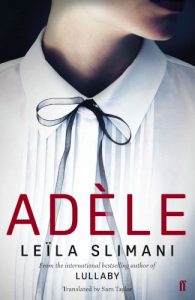 So the premise of Adèle, originally published in French in 2014 as Dans le jardin de l’ogre (‘In the Ogre’s Garden’), was at first a source of some consternation—a Parisian journalist with a wealthy doctor husband and obedient blonde child?! But one should never forget that in just a couple of novels—she has written six, but just two, Adèle and Lullaby, have been translated into English—Leïla Slimani has established herself as an uncompromising surgeon, cutting through the myths of family in a deadpan, matter-of-fact style. And stylish this book is: the language construction is enviable. Slimani’s sleek description makes Adèle’s poise and beauty clear. As she slices through this middle class life, Adèle’s body is always presented as a thing of beauty, despite the carpet burns on her back, a fringe belying the bumps on her forehead, mystery bruises. She is neither a lover of love nor does she truly revel in pleasure. Sex is a largely joyless need, quickly fulfilled.
So the premise of Adèle, originally published in French in 2014 as Dans le jardin de l’ogre (‘In the Ogre’s Garden’), was at first a source of some consternation—a Parisian journalist with a wealthy doctor husband and obedient blonde child?! But one should never forget that in just a couple of novels—she has written six, but just two, Adèle and Lullaby, have been translated into English—Leïla Slimani has established herself as an uncompromising surgeon, cutting through the myths of family in a deadpan, matter-of-fact style. And stylish this book is: the language construction is enviable. Slimani’s sleek description makes Adèle’s poise and beauty clear. As she slices through this middle class life, Adèle’s body is always presented as a thing of beauty, despite the carpet burns on her back, a fringe belying the bumps on her forehead, mystery bruises. She is neither a lover of love nor does she truly revel in pleasure. Sex is a largely joyless need, quickly fulfilled.
Dispassionately she looks at her son and thinks:
There is love somewhere, she has no doubt about that. A rough misshapen love, dented and bruised by everyday life. A love that has no time for itself.
But the same could be said about her. As a sex addict, Adèle is a victim of her own desire. She shows no real attraction to the men she pulls, nearly every night, making the very stylised sex scenes at times an uncomfortable read. To encounter someone so driven and quietly driven mad is mildly infuriating. Her closest encounter with pure joy is when she is ten, when on a family trip she accidentally stumbles into seedy Pigalle, drenched in red lights, pavements peppered with clients, sex workers and fetishists of all genders and ages. Slimani writes:
Never since that evening … has she rediscovered that magical feeling of actually touching the vile and obscene, the heart of bourgeois perversion and human wretchedness.
Adèle’s husband also displays a terse and unusual relationship with sex throughout his life, ranging from indifferent to puritanical, which is why it takes him so long to uncover his wife’s exploits. When he does, he uproots the family to the French countryside, where Adèle will take the cure of quiet nature and a housewife’s isolation, while he gorges himself on control, which has always been his biggest turn-on. It doesn’t take. And neither does the ending, which unfolds in the form of a whispered threat and a vision of an uncertain future for the pair of them.
In a parallel fictional universe (also rural France), another woman, unnamed, rails against the pastoral prison in a more fiery and rabid fashion. Early on, she says gloriously—
If I burn with desire I’m a stag walking into a wood the way a bridegroom walks into a church.
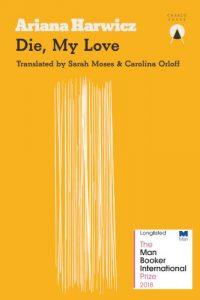 Argentinian author Ariana Harwicz’s main character in Die, My Love (longlisted for the 2018 Man Booker International Prize) hates her children, her husband and herself. The book opens with a clear suicide wish, and this big mood envelops.
Argentinian author Ariana Harwicz’s main character in Die, My Love (longlisted for the 2018 Man Booker International Prize) hates her children, her husband and herself. The book opens with a clear suicide wish, and this big mood envelops.
The hills are alive with the jarring ringtone of a baby’s cries and the clouds are heavy with postpartum depression. Cattle fall into rivers and are swept away by currents on hot afternoons. Hallucination and reality link fingers and stumble through Harwicz’s Lynchian countryside, drunk on magical realism composed in that startling, energising way that only South American writers can achieve. You can see She the Unnamed, roiling naked in a summer field, every blade of grass steaming under her unwashed body.
Like Adèle, she also projects onto her son:
And I think about how the child is a wild animal, about another person carrying your heart forever.
—when it is she who so desperately wishes to escape the tormenting duty of human skin.
In this beast-woman and her wild, dark thoughts, Harwicz creates a beautifully poetic space for questioning motherhood and knocking over the bounds of violence and desire. Just before taking a lover, our narrator declares—
I look at him and know that afterwards I’ll have a beak, feathers, talons. At first, as often happens at first, I don’t know if I should kick him out or stick a rake into his chest, but then, as if firing silver sparks into the black air, we kiss.
Where Adèle is passivity and chic seduction, She is aggression and bestial passes. Die, My Love is more geared to the voyeur in the bushes. And its flexibility and gripping imagery allow it to be read, Bible-style, out of sequence, over and over again.
Both novels succeed in exploding myths about women being inherently nurturing, monogamy-enforcing homemakers. And each in its own way does an effective job of turning the female gaze on lust, sex and love addiction, which until a couple of years ago in popular contemporary art was almost exclusively narrated by extremely hot white men (think Michael Fassbender in Alexander McQueen’s Shame and, in an art-imitating life twist, David Duchovny in Californication).
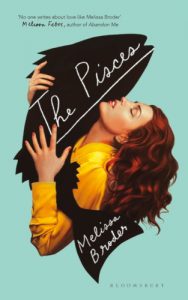 Sex and love addiction is also the (sometimes underwater) kingdom of The Pisces which was recently longlisted for the 2019 Women’s Prize for Fiction. Written by Melissa Broder, the agile mind behind the relentlessly bleak modern despair account @sosadtoday, it’s one of the most inexplicably underrated novels of the past year.
Sex and love addiction is also the (sometimes underwater) kingdom of The Pisces which was recently longlisted for the 2019 Women’s Prize for Fiction. Written by Melissa Broder, the agile mind behind the relentlessly bleak modern despair account @sosadtoday, it’s one of the most inexplicably underrated novels of the past year.
Hysterical realist or ultra-postmodern texts, while intellectually accessible, live in danger of seeming facile and not deeply enough considered, owing to their rootedness in the now. The double-edged sword of this sub-genre has proved near fatal for authors like Douglas Coupland and Bret Easton Ellis, whose later works are awkwardly framed by hyperreality. Broder, however, manages to wink at late-stage capitalism, adjunct faculty abuse and millennial culture without jeopardising the reflective intensity of the narrative. Sitting in group therapy, with other female sex and love addicts, Lucy thinks—
How did I end up with these losers? I hated the words they used: inner child, self-care, intimacy, self-love. We were Americans, how much gentler could life be on us? All we had received was coddling.
Lucy is a thirty-something grad student trying to scam her way through a bullshit PhD, her thesis titled, ‘The Accentual Gap: Sappho’s Spaces as Essence’, while grappling with her conflicting sexual and romantic desires. She is compulsively lonely and lives her life in crippling fear, in the hinterlands of the emptiness that characterises adult life and relationships. After a break-up she repairs to her yoga millionaire sister’s house in Venice Beach. By the sea one evening she meets and quickly falls in love with a merman, named Theo. The Pisces sensually charters their fantastical interspecies romance, and we watch Lucy rollercoaster through her usual dysfunctional cycles of love and attraction. As a novel it is like an Ovidian, X-rated alternate retelling of The Little Mermaid, and its sinister premise is well tempered by hilarious hijinks and Lucy’s charming, incomplete self-actualisation.
Lucy often extols the drug-like ability of love to distract from the void and death. But even in the midst of passion her insecurity threatens to mar it all. After less than a day apart from Theo she thinks:
What would it take for him to be enough? Even if I were to cook him up and eat him, fry his deliciousness with butter and a bib, swallow him up and digest him inside me, it still wouldn’t be enough.
These questions draw her to the brink of existence, where her other two sisters live.
Adèle, Die, My Love and The Pisces are three stirring psychological fictions strikingly different in pace, tone and origin. Yet, through their shared heartstrings of rough honesty, ample sex and ripe desire, they all create striking, kindred portraits of contemporary womanhood.
- Efemia Chela is Francophone & Contributing Editor. Follow her on Twitter.

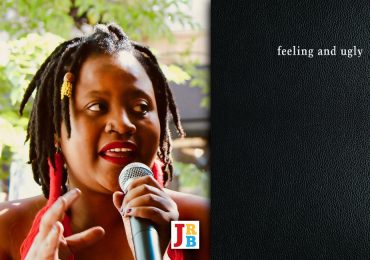
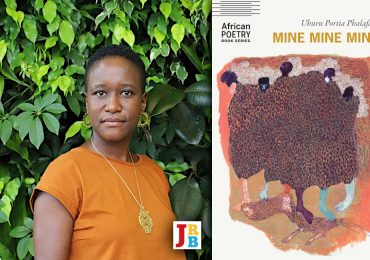
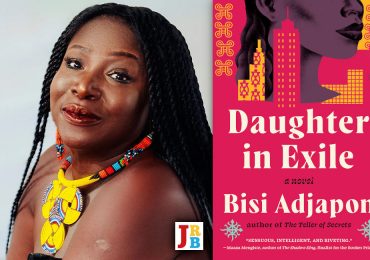

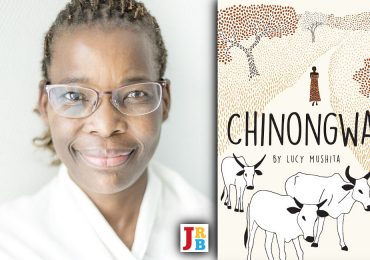
Check out Voy Media for sex videos